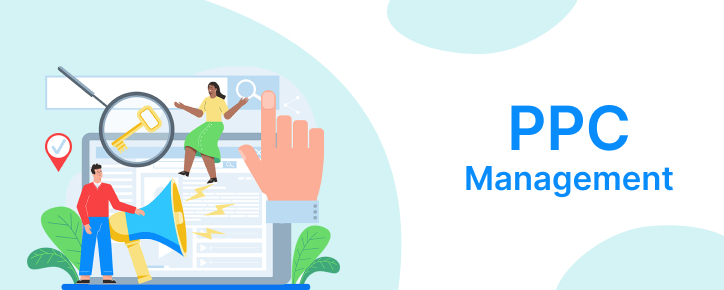
PPC Management
PPC (pay-per-click) management refers to the process of managing and optimizing PPC advertising campaigns to ensure maximum return on investment (ROI). PPC advertising involves placing ads on search engine results pages or social media platforms, and paying for each click on the ad.
Here are some key elements of PPC management:
Keyword research: PPC campaigns are often built around specific keywords that are relevant to the target audience. Conducting thorough keyword research can help to identify the most relevant and profitable keywords to target in a campaign.
Ad creation: Creating high-quality, compelling ads that are relevant to the target audience is crucial to the success of a PPC campaign. Ads should be tailored to the specific platform and audience, and should include a strong call-to-action to encourage clicks.
Bid management: Bids determine how much a business is willing to pay for each click on their ad. Effective bid management involves finding the right balance between bid amount and ad position, to ensure maximum ROI.
Landing page optimization: The landing page is the page that a user is directed to after clicking on an ad. Optimizing the landing page for user experience and relevance can help to improve conversion rates and ROI.
Monitoring and analysis: Regularly monitoring the performance of a PPC campaign, and analyzing key metrics such as click-through rate, conversion rate, and cost-per-click, is essential to identify opportunities for optimization and improvement.
Effective PPC management requires a deep understanding of the target audience, as well as expertise in data analysis and campaign optimization. By leveraging the right PPC management strategies, businesses can drive targeted traffic to their website, increase conversions, and ultimately grow their business.






